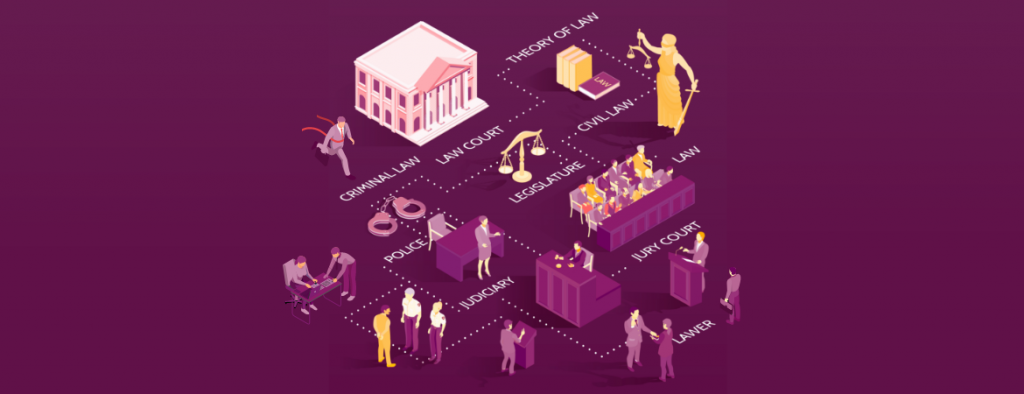What are the most common reasons that candidates struggle to crack the judiciary exam in their first attempt?
Do you feel that if you don’t crack it the first time, it’s not much of a problem because you have another chance? What is the real cost of giving a judiciary exam for the second and the third time?
What are the long term implications of cracking the exam later?
What do you need to do to maximize the chances of cracking the judiciary exam in the second, third, or fourth attempt?
Poor preparation, arising out of the following reasons, is the most common cause of failure for most candidates in their first attempt:
- Believing that there is a second or third chance to make up for any errors;
- Trying to do all of the preparation by one’s own self without taking any guidance;
- Studying without sufficient planning or direction, or with faulty techniques;
- Lack of sufficient practice;
- Not having access to the right materials; and
- Not preparing for the mains or the interview stage alongside preparation for the prelims.
Someone I know of cracked the Rajasthan judiciary after 7 years of giving her first attempt.
She had attempted the exam each year since 2013.
What is the real cost of this delay for her?
You might think that she is 7 years late, but there are more serious implications.
Incidentally, her peers have been promoted to the designation of Additional District and Sessions Judge (ADJ), which usually takes 15 years. In this situation, the promotions were expedited.
If she starts today, she will take 15 more years to become an Additional District and Sessions Judge. In total, she may reach the same place 22 years later.
Shocking, isn’t it?
If you take too many attempts to crack the judicial services exam, it does not just impact when you start, but also the position in which you will retire.
Whether you retire as a High Court judge or Additional District and Sessions Judge will be determined by when you cracked the judicial services exam.
Of course, this is an extreme example, but it is not uncommon for candidates to give four to five years after graduation to preparing for their judiciary exams.
If you have already attempted the exam once or twice but not cracked it, what advantages does this give you for your next attempt?
You will definitely have the benefit of hindsight.
I’ll list down a few natural advantages below:
- You will have familiarity with the syllabus.
- You would have walked the journey once or twice, so you know what the different phases of the journey can feel like – whether it is first time preparation, mocks, last minute revisions, or the days before the exam.
- You have sat through the exam, so you have a sense of the nervousness on the day of the exam.
- You may be far more serious in your preparation, having seen how difficult the real exam has been.
What are the challenges that you will face in your subsequent attempts?
The first set of challenges are going to be psychological.
Lack of motivation in your second and third attempt is the biggest challenge. Experience of defeat is common. One does not know exactly what to do to increase chances of success.
A feeling of monotony and boredom also affects you, because you need to prepare all the subjects again and attempt from the prelims onward, even if you cleared one or two stages in your earlier attempts.
If you studied for 2, 3 or 4 years, you may wonder what you can do differently in one more year, which you could not do in the previous years, as you had more time earlier.
You may also feel a sense of guilt or being a liability towards your parents or others who support you, because you were not able to find your own path despite spending years on your education.
Some students also feel left out, as some of their peers move on to become judges or pursue other career options. They need to build or join a community of peers again.
What will you need to do to crack the judiciary exam in your subsequent attempts?
You need to undertake a root cause analysis, to find out what went wrong in the exam.
Several candidates simply start studying again mechanically, but that will not help.
Was your preparation complete, or did you hurriedly prepare for certain subjects?
Were you able to finish attempting all the questions during the exam?
Did you face difficulty in a specific portion of the exam, such as essay-writing, or judgment-writing, or something specific at the interview stage?
Were you able to revise effectively? Did you have sufficient practice under exam conditions?
Candidates frequently face difficulties with recalling the information, applying it to specific situations, or in expressing themselves.
After the root cause analysis, it is important to recognize that you will have to begin all over again, keeping the root cause in mind.
As you will have to re-attempt even the prelims, it makes sense to prepare afresh.
However, this time, you cannot afford to leave any stone unturned.
You need next-level discipline. Put in 14 hours per day.
Align your family to your goal – let them know how important it is for you to crack the exam this time, so that they do not disturb you or invite you for any family events or activities that may distract you.
It will be embarrassing if every once in a while they ask you to watch a movie, or to a dinner or a getaway, and you have to turn them down. It will weaken your resolve.
Hence, let them know upfront that you will be unavailable for such activities.
Many students fall into the trap of generating backup options at this time. This is not a good idea.
If you cannot fully commit, you might as well abandon the second/ third attempt and focus fully on your backup.
If you want to give a serious second/ third attempt, it is worthwhile to put all your eggs in one basket.
Keep your backups on the backburner, for now.
If you nurtured them earlier, you can activate them afterward.
What if I am already doing a job? How can I manage my studies?
Well, if you cannot study somewhere between 10 to 14 hours in a day, this may be difficult. Reconsider your priorities.
Can I create a 5 hour plan instead of a 12-hour one?
Not recommended at all. Refer to the above answer.
An example of a 12-hour study plan will be as follows:
- 2 hours – live classes for a particular subject
- 1 hour – Daily News Analysis and Static GK
- 1 hour – English/ language paper
- 2 hours – Watch recorded sessions and read notes
- 2 hours – subjective answer writing
- 1 hour – MCQs
- 30 minutes – reviewing reports to see where you are lagging
- 2 hours – revision time to improve where you lagged in the mocks
- 30 minutes – planning for the next day
* 1 hour – yoga, meditation, affirmations.
Make sure that you don’t curse your life – devoting one hour to yoga, workout, mindset, journaling, listening to affirmations and mirror work will be important to maintain your mental health.
It will enable you to connect your study schedule to the reason why you want to become a judge. Read this article to understand more.
Decide if you want to opt for coaching. If you attempted the exam and could not crack it for the first time, you will most likely benefit from guidance.
It makes sense to select your coaching as early as possible. Choose wisely.
A good coaching class can help you in the following ways:
- In conducting a root-cause analysis. As I explained earlier, it is important to identify what went wrong. Most people do not perform this step, and therefore they are as likely to make the same mistakes again in their preparation, despite having another year to crack the exam. Others struggle to identify the gap, because of their own blind spots. Having someone else review your preparation helps you diagnose the gaps and your own blind spots, so that you do not make the same mistakes in your preparation again.
- You can obtain a detailed study plan, with a ‘winnable’ agenda for every day of preparation. If you complete the agenda, you can feel accomplished everyday. The brain releases dopamine, a reward hormone that makes you experience victory and builds confidence over time. Without a coach, candidates struggle in creating their study plan and then following it. They frequently get scattered owing to the vast syllabus. They find it challenging to improvise on the fly. Instead of pushing hard to meet ambitious goals, recognising progress and acknowledging themselves for it in the end, they end up blaming themselves for failing to meet their ambitious study goals.
- A coach will help in pushing you and motivating you, when you are running out of steam. Recall how a gym coach pushes you to do the extra repetition, after you have no energy left. That extra repetition develops your muscle more than your earlier workout.
- A good training can give you superior quality reading materials, so that you can reduce your study time. You don’t need to read through volumes of textbooks and complex content which is more appropriate for college exams or practitioners, but not for cracking the judiciary exams. For example, a Bangia is good for cracking the college exams but is it really the best resource to study for the judiciary exam?
- You can also use technology to attempt mocks and track your progress across different subjects and topics. Automation helps you set timers and measure topic or subject-wise performance and track it over time.
- A trainer can help you improve your learning techniques for subjects in which you struggle, such as procedural laws, jurisprudence, GK, etc. as the study technique to learn those subjects may differ. For example, some people may be good at understanding concepts under Indian Penal Code, but poor with GK or procedural laws.
Make sure that you don’t have to spend time travelling, and that you are not dependent on the pace of the coaching ‘class’ alone. You should have enough access to materials and tests to march ahead of the batch.
How can this knowledge benefit you, if you will attempt the judiciary exam for the first time?
If it will be your second or third attempt, how can you use this knowledge?
Let me know in the comment.
If you are interested, you can directly join our group by clicking on the link below.
The group is specifically curated for judiciary aspirants.
https://chat.whatsapp.com/Hui5yp4RNcx1tQLfR966Ta
You will also get access to some other amazing resources through the group as well.
Students of Lawsikho courses regularly produce writing assignments and work on practical exercises as a part of their coursework and develop themselves in real-life practical skills.
LawSikho has created a telegram group for exchanging legal knowledge, referrals, and various opportunities. You can click on this link and join:
https://t.me/lawyerscommunity2
Follow us on Instagram and subscribe to our YouTube channel for more amazing legal content.







 Allow notifications
Allow notifications
